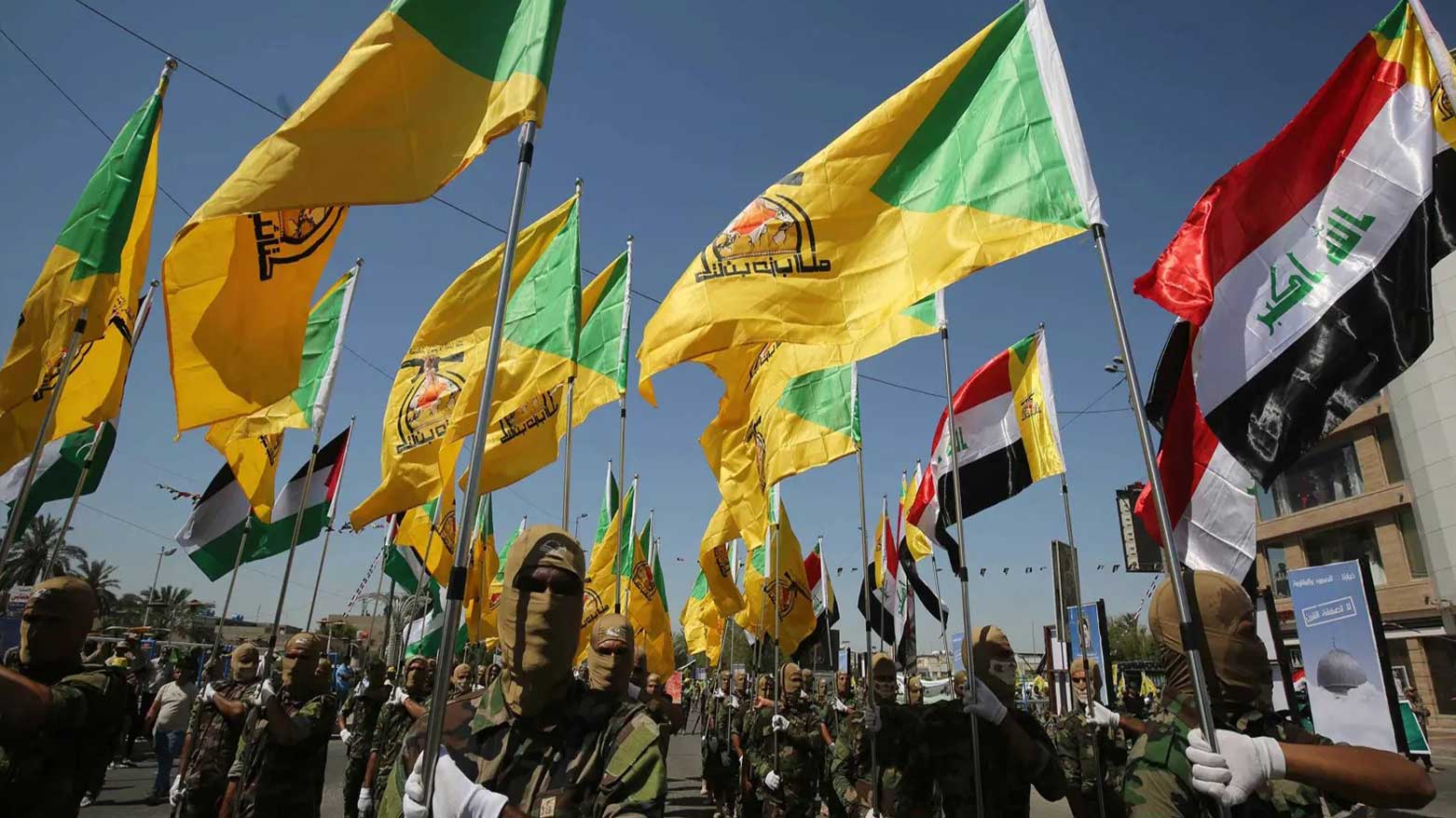Iraqi Militias on High Alert After U.S. Strikes Against Houthi Positions in Yemen
Iran-backed Iraqi militias have started evacuating key facilities, repositioning forces to fortified locations, and issuing internal directives to limit the public appearances of their leaders.

ERBIL (Kurdistan24) – Amid increasing military tensions, Iran-backed Iraqi militias have taken precautionary measures in anticipation of potential U.S. airstrikes following recent heavy bombardments of Iran-backed Houthi militia positions in Yemen. This heightened state of alert signals concerns over the possibility of similar military actions targeting these militias in Iraq, Erem News reported on Sunday.
An Iraqi security source, speaking to Erem News, confirmed that several militia groups had begun evacuating key facilities and repositioning their forces to more fortified locations. This move comes in response to a potential escalation of military actions, which are feared to occur in the coming days or weeks.
Internal Orders and Security Protocols
The source elaborated that internal directives have been issued to limit the public appearances of the Iraqi militia leaders and to enhance security measures surrounding prominent figures. These measures are intended to ensure the continuity of coordination and communication among the militias, despite the growing risks of military engagement.
The U.S. airstrikes against the Houthi militia have intensified over the past hours, targeting military sites and vital infrastructure across six Houthi-controlled Yemeni provinces. The strikes, which employed advanced "Tomahawk" cruise missiles and specialized weapons capable of penetrating mountainous fortifications, have been described as some of the most severe in recent history. This escalation has raised alarm among Iraqi militias, who fear similar strikes against their positions.
A Broader Strategy
Experts view the U.S. actions in Yemen as part of a larger strategic campaign designed not only to counter Houthi militias but also to curb Iran's growing influence in the region. The targeted strikes send a clear message to Tehran, signaling Washington’s intent to dismantle Iran’s military footholds in the Middle East.
Iraqi Government Efforts to Contain Militias
In response to these developments, Iraqi Parliament member Nayef al-Shammari emphasized that recent U.S. actions in Yemen must be viewed within the broader regional context, particularly the situation in Iraq. He acknowledged the Iraqi government’s significant efforts to manage armed militia factions and prevent further escalation, noting that Prime Minister Mustafa al-Kadhimi had intervened directly to ensure that Iraq does not become a battleground for external powers.
Since the outbreak of the Gaza conflict, several Iraqi militias have escalated their use of drone attacks against Israel, targeting military sites in the Golan Heights and the Jordan Valley. These militias, based in the desert areas near the Iraq-Syria-Jordan border, have relied on drones to carry out strikes, prompting Israel to threaten retaliation against these groups within Iraq.
U.S. Strategy to Undermine Iran's Influence
Security experts suggest that the United States is increasingly focused on undermining Iran's regional influence, particularly through direct confrontations with its military proxies in countries such as Yemen and Iraq.
A military expert interviewed by Erem News noted that the U.S. is reorienting the balance of power in the Middle East, aiming to dismantle the Iranian influence network. Following significant strikes against Hezbollah leadership in Lebanon and toppling Syria's Bashar al-Assad, the focus is now on targeting Iran’s remaining active military assets in Yemen and Iraq.
The militias, including Iraqi factions like Kataib Hezbollah, al-Nujabaa, and Asa’ib Ahl al-Haq, are seen as Iran’s last remaining effective military proxies in the region. However, recent U.S. airstrikes are signaling that these groups are now in direct line of fire, with experts predicting a potential dismantling of Iran's military infrastructure in the region.
Iraq's Militia Dialogue Efforts
In recent months, the Iraqi government has made concerted efforts to address the militia issue, engaging in dialogue and negotiations aimed at containing their influence. Despite these efforts, tangible results have yet to materialize, and the militias continue to operate with relative autonomy.
Security experts predict that any escalation in Iraq will likely target militia-controlled military bases, weapons storage facilities, and sites used to plan attacks against Israeli and U.S. interests in the region.
A Message to Tehran
Experts argue that the U.S. military strikes in Yemen were not only aimed at the Houthi militia but also served as a clear message to Tehran. The timing of U.S. President Donald Trump’s statements, which were coincident with the airstrikes, highlights the binary choices facing Iran: either engage politically with Washington and cease supporting its regional proxies or face further military retaliation.
Analysts suggest that the U.S. message is clear: Iran's support for militias in Yemen, Iraq, and beyond will no longer be tolerated. Tehran must decide whether to negotiate or face the prospect of further military strikes.
Maritime Security Concerns
One of the primary reasons for the U.S. airstrikes is the Houthi militia's recent announcement that they would resume targeting Israeli vessels, potentially expanding their scope of operations to include American ships.
Strategic military expert Ali al-Zahab explained to EREM News that these strikes were directly linked to Washington’s attempt to deter Iran’s involvement in such actions. If Iran and the Houthis fail to heed this warning, further U.S. airstrikes may follow.
A Stark Message to Iraqi Militias
The U.S. military’s recent actions in Yemen also serve as a stark warning to Iranian-backed militias in Iraq. Military experts like Dr. Faris al-Bail further emphasized that these groups must recognize the reality of U.S. power and reconsider their actions to avoid further escalation.
As Iraq grapples with mounting internal and external pressures, the future of Iran's regional strategy remains uncertain. The next few weeks could be pivotal in determining whether diplomatic efforts or military interventions will dominate the unfolding crisis.
In conclusion, the military dynamics in the Middle East are rapidly evolving, with the U.S. positioning itself to confront Iranian influence in Iraq and Yemen. The current situation reflects a significant shift in regional power, and how Tehran responds will determine the next phase of this ongoing conflict.